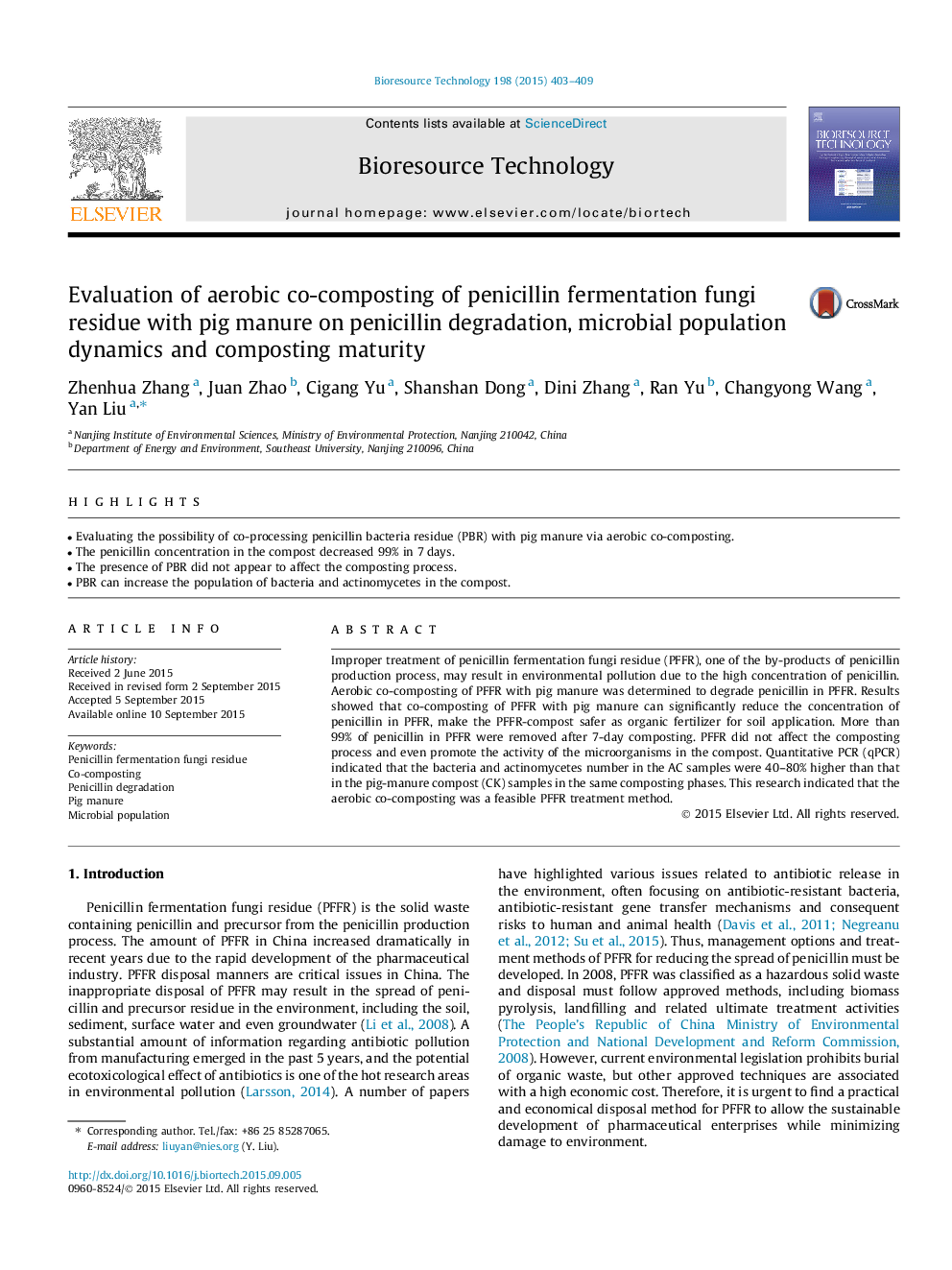| Article ID | Journal | Published Year | Pages | File Type |
|---|---|---|---|---|
| 679450 | Bioresource Technology | 2015 | 7 Pages |
•Evaluating the possibility of co-processing penicillin bacteria residue (PBR) with pig manure via aerobic co-composting.•The penicillin concentration in the compost decreased 99% in 7 days.•The presence of PBR did not appear to affect the composting process.•PBR can increase the population of bacteria and actinomycetes in the compost.
Improper treatment of penicillin fermentation fungi residue (PFFR), one of the by-products of penicillin production process, may result in environmental pollution due to the high concentration of penicillin. Aerobic co-composting of PFFR with pig manure was determined to degrade penicillin in PFFR. Results showed that co-composting of PFFR with pig manure can significantly reduce the concentration of penicillin in PFFR, make the PFFR-compost safer as organic fertilizer for soil application. More than 99% of penicillin in PFFR were removed after 7-day composting. PFFR did not affect the composting process and even promote the activity of the microorganisms in the compost. Quantitative PCR (qPCR) indicated that the bacteria and actinomycetes number in the AC samples were 40–80% higher than that in the pig-manure compost (CK) samples in the same composting phases. This research indicated that the aerobic co-composting was a feasible PFFR treatment method.
